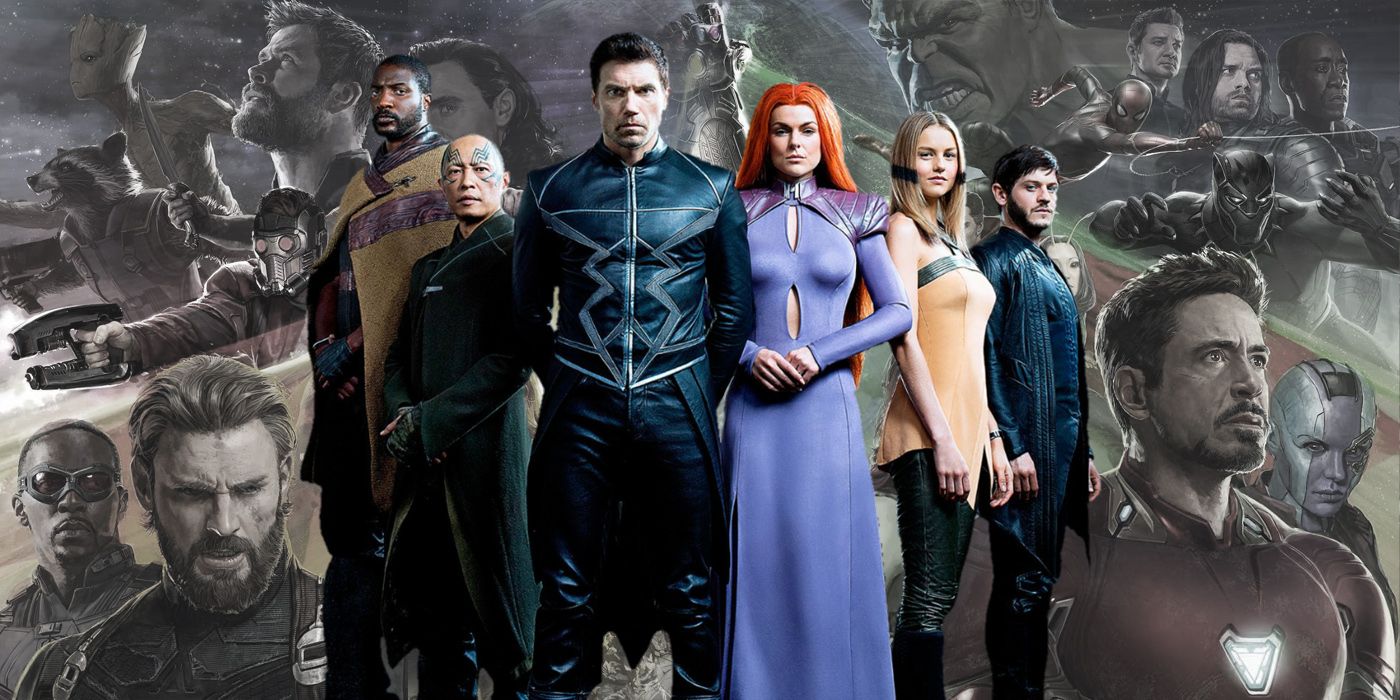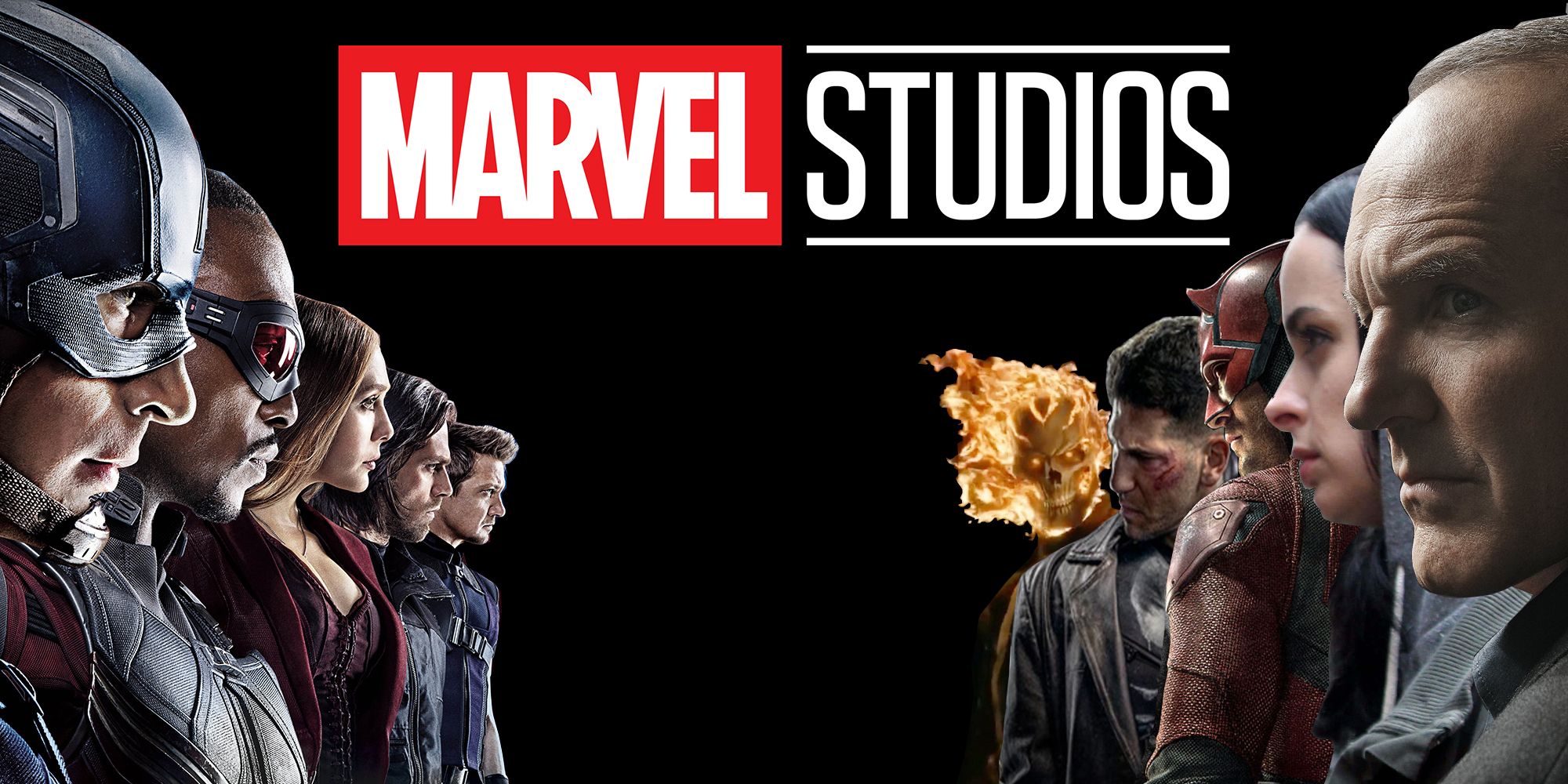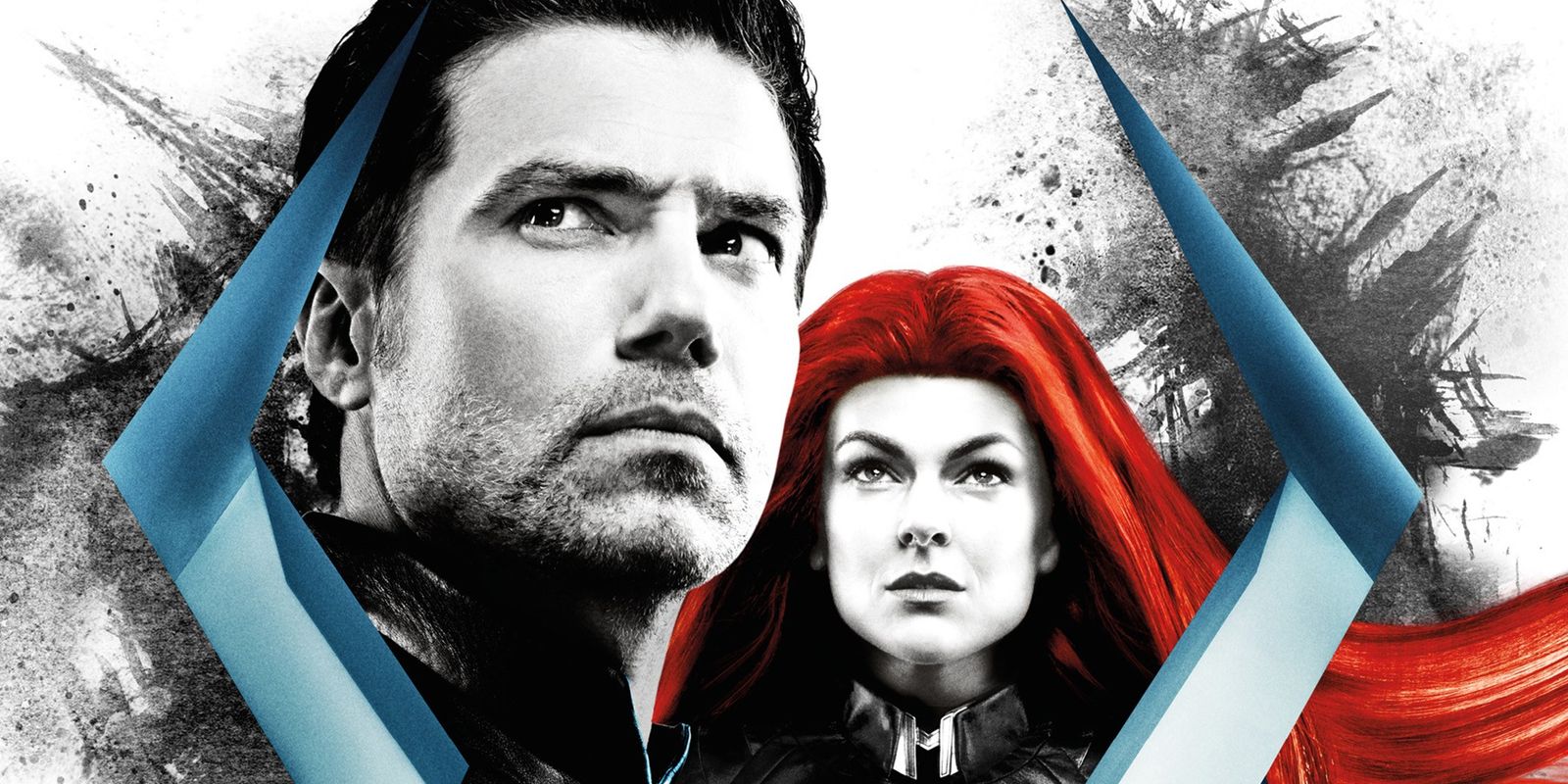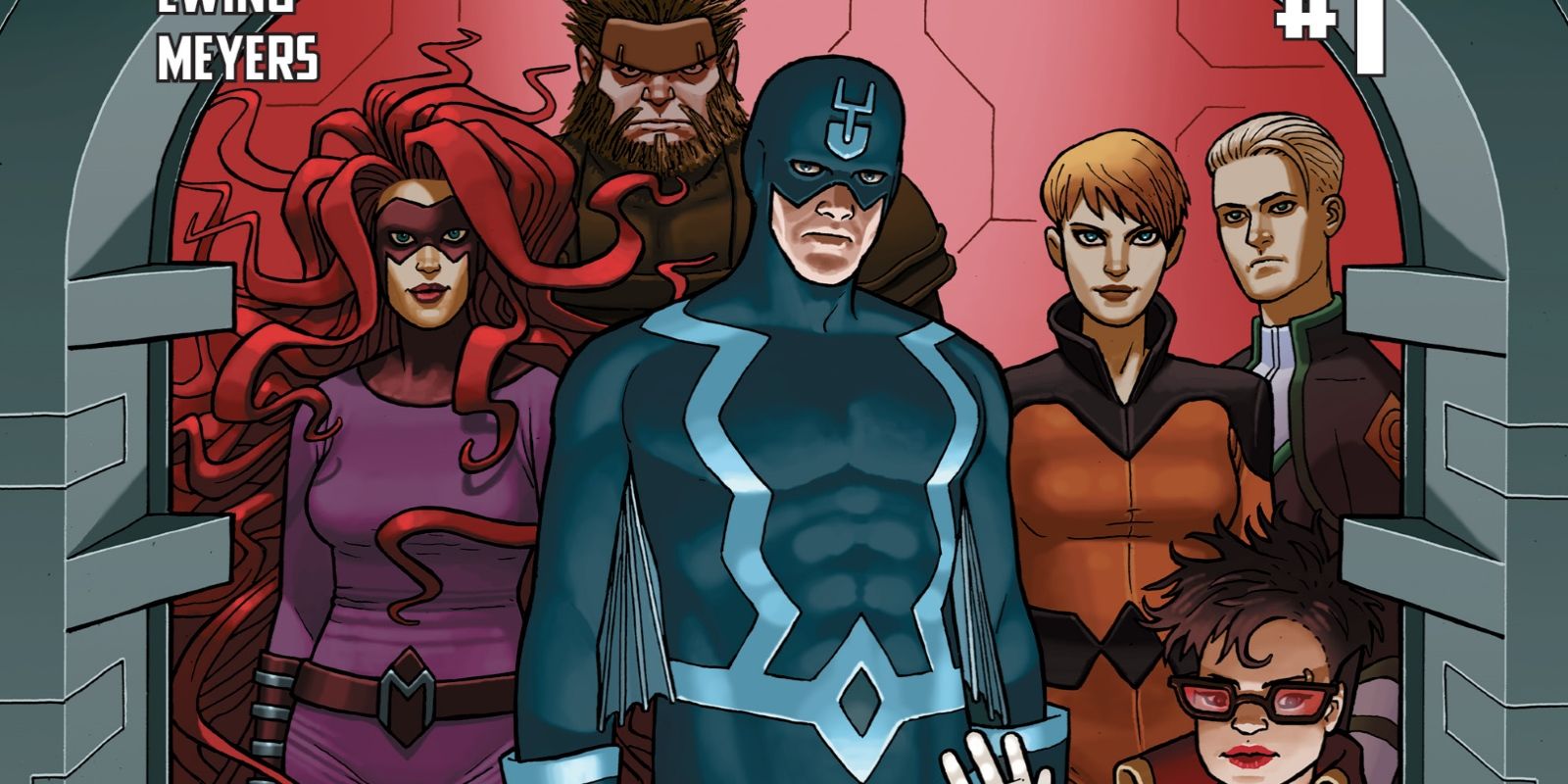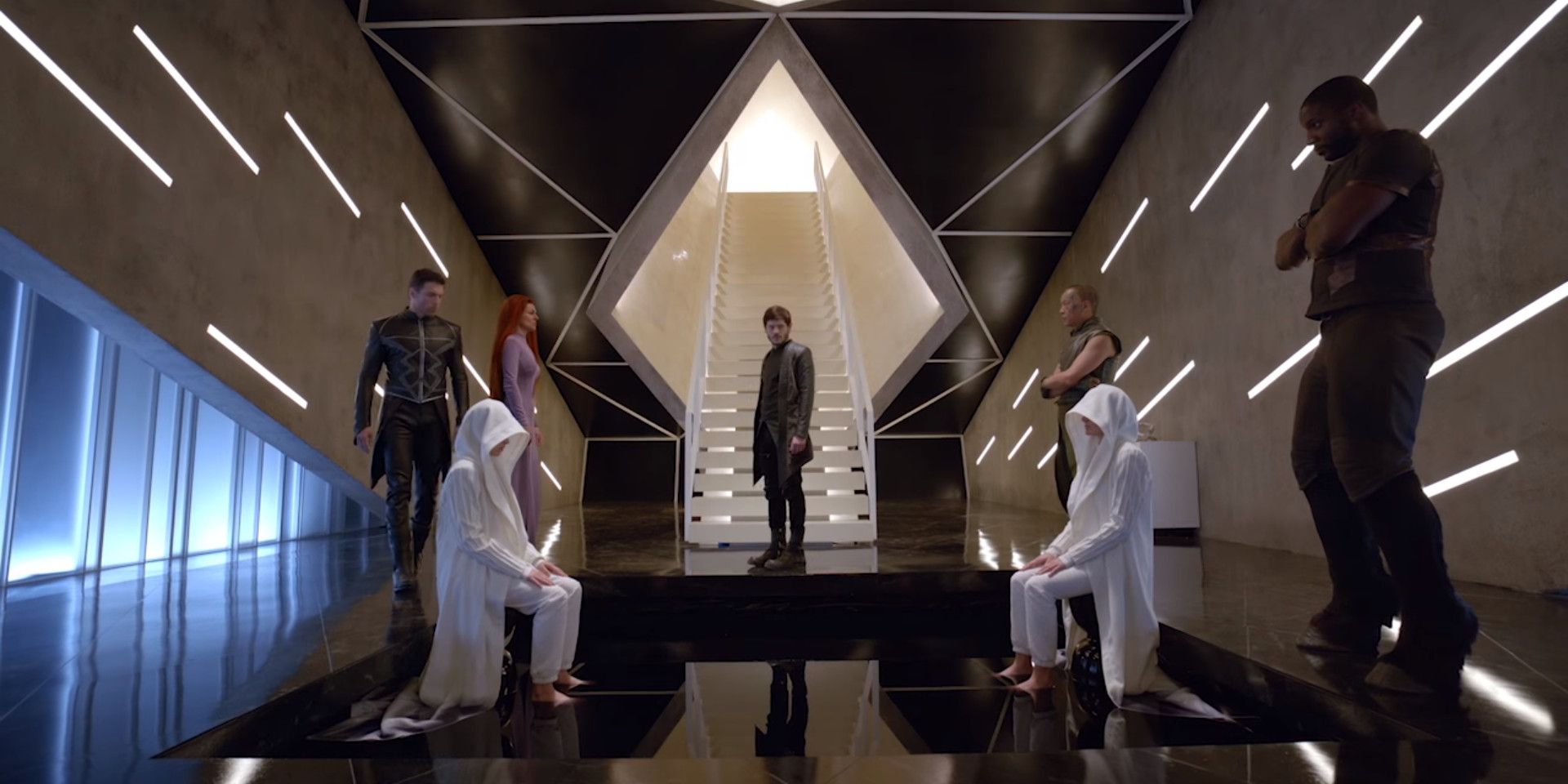Update: We Explore What Marvel's Inhumans Failure Means For The MCU
The MCU has been riding high when it comes to the big screen, but will the repeated mistakes of Marvel TV - most recently with the major misstep of Inhumans and its IMAX release - hurt the brand?
Its airing on ABC is only just upon us, but it's hard not to describe Inhumans as a failure. The Marvel TV project focusing on the long-standing C-list property has been a problematic prospect from the start - as we'll see, it was at the center of a major rift in the company - but its realization couldn't have been worse. After a string of poor character reveals and trailers, the show arrives with a 0% on Rotten Tomatoes and a weak box office opening. It's such a mess that when defending it the cast and crew can't even call on the well-worn "it's not for the critics, it's for the fans" defense because even die-hards dislike it.
Related: Marvel's Inhumans Premiere Review: We May Have Reached Peak Superhero
But being bad (and in case that's not been made abundantly clear, Inhumans is bad) and arriving on TV with minimal fanfare are the least of the problems. Sure, we're unlikely to get a Season 2 unless there's a major late-season turnaround and showrunner Scott Buck (who already delivered a Marvel dud with Iron Fist earlier this year) is running out of chances, but the real problem is what it means for the wider MCU.
Marvel TV Isn't Marvel Studios
Brief history lesson. Marvel Studios was founded in the mid-2000s and produces all the MCU movies (which are at present uber-successful to the tune of $12 billion box office worldwide). It was originally part of Marvel Entertainment, sitting alongside comics, merchandise, TV et al. This changed in 2015 when mounting tensions between Entertainment CEO Ike Perlmutter and Studios President Kevin Feige reached fever pitched; Marvel Studios was removed from under the wider Marvel banner and now reports directly to Disney Motion Picture Studios.
The movie and TV divisions were already separate to a degree, with crossovers unlikely; Agent Coulson is as good as dead in the movie continuity and the entire Netflix Defenders enterprise only happened because Feige didn't have any plans for Daredevil (the same is true of Ghost Rider in Agents of S.H.I.E.L.D.). However, this studio shift meant that, while both wings still inhabit the same fictional universe, they have no creative link.
There's a lot of repercussions from this and the dispansion of the Creative Committee - if you've noticed an uptick in quality in the films and their marketing since (compare Age of Ultron to Civil War), this is why - but the biggest casualty was Inhumans.
Inhumans Were Meant To Be Marvel's Next Big Thing
When it was first announced, Inhumans was going to be a movie released on November 2, 2018 - between the two-parts of Avengers: Infinity War. This was just the first step in a major shift across Marvel that would see the Royal Family essentially replace the X-Men due to Fox owning those movie rights; the comics gained pride of place just as mutant runs were being canceled and Agents of S.H.I.E.L.D. began heavily setting it up in its second season. The only hitch was that Kevin Feige didn't like the idea. This was clearly a move from the pure business man Perlmutter and for whatever reason it didn't fit the producer's Infinity gameplan. Whether this was the cause of the duo's rift or just a catalyst is unknown, but once the two corporate entities separated it was dropped from the slate and tossed back to Marvel Entertainment.
Undeterred, Ike continued without him and set the property to debut on TV - but not just as ny TV show. This was billed as an event, with an eight-episode run promising quality over quantity and an IMAX premiere that seemingly bridged Marvel TV and the realm of the Marvel Cinematic Universe proper. Per Buck, it was going to "feel like a movie". If the CEO couldn't have any say in the movies, he'd get Inhumans on the silver screen another way.
After being torn away from each other, Marvel TV is starting to try and square up to Marvel Studios - and failing terribly. But that's all insular; to casual audiences on the outside, there's just one big red logo. It is all connected, after all.
Does This Finish The Inhumans?
Obviously, the negative response hurts - and potentially outright buries - Inhumans. Which is a blow for the MCU by itself. What they offer isn't just a massive roster of uniquely-powered characters, but a new aspect to heroism. The comparisons to the X-Men are well-documented, but that could have been Inhumans' strength; the MCU is mostly about regular people who get powers through various means, whereas they give something more ingrained, an opportunity to explore power and prejudice. However, the show is very basic about it all and only glances at it in a very standardized superhero story.
It's a waste of a property and, being lesser-known, it'll be hard for them to bounce back. Imagine if Guardians of the Galaxy had failed; we wouldn't have Avengers: Infinity War quite as cosmic as it is, and it certainly wouldn't be marketed on the gang of a-holes as much as it is the eponymous Earth's Mightiest Heroes.
Related: What Went Wrong With Marvel's Inhumans?
The show might pull itself around. Perhaps Parts 3-8 are Twin Peaks: The Return-level TV masterpieces that see Inhumans elevated to the top of the superheroic pack (or maybe they're just average - at this point that would be enough). But the bad press - both of the show's quality and its performance - mean it's going up against massive odds. And that's bad for the MCU.
What Inhumans Does To The MCU
As it stands, Marvel Studios is yet to have an all-out failure; all the films have strong reviews - both fan-wise and critically - and all have made a tidy profit. They're not without their systemic flaws (visual palette, narrative formula), but the overall level of quality, especially in regards to characterization, tends to be high. However, when you factor in TV the issues become more prevalent; Agents of S.H.I.E.L.D. was a slow-starter, Marvel Netflix habitually gets blamed for stretched second halves (and Iron Fist is outright vilified), and now Inhumans has completed the trifecta.
Because of the virgin MCU's "it's all connected" tagline, many more casual audience members not knowing the behind-the-scenes drama view movies and TV as the products of the same creatives. Naturally, they do all feed into a bigger picture of superhero proliferation and potential fatigue, but we're talking more specifically about the Marvel logo; The Defenders' mixed reaction reflects on expectations for Thor: Ragnarok not because they're both superpowered but because they're from the same brand. As we've established, that's not actually the case and they just live tangentially in the same universe, but the flippant use of the "Marvel" name in the discussion blurs the lines; how many reviews for Iron Fist used the movies' reputation for contrast?
Related: Kevin Feige Reiterates That There Are No Plans to Work With Marvel TV
Inhumans' IMAX release made it even harder to distinguish. This was in cinemas. You were paying money to see it. It showed alongside Spider-Man: Homecoming in some multiplexes. A trailer for Ragnarok played before it. Obviously, it was a flatter proposal given the muted advertising befitting a TV show at the movies (indeed, its box office struggles do go to show that the Marvel logo alone isn't enough for financial success) but it had that place as a movie experience.
And as it fails at what makes Marvel Studios movies work we have a situation where cracks in Kevin Feige's armor that don't exist are being discussed. Putting aside the obvious writing, flat action (every fight scene takes place in a room of pillars or forest so they can pan cut over any effects-heavy combat), laughable attempts at flair and bemusing choices in the IMAX premiere (they forgot to cut the episode 2 flashbacks), no character in the premiere (not even supposedly lovable Lockjaw) leaves an emotional impact and the show's sense of place in a complete world is nonexistent; the only outside connections are very vague repercussions from that S.H.I.E.L.D. set up. It reflects badly on the MCU by association.
-
There's no excusing Inhumans' failure, but while you could trace elements of it back to Feige's insistence of not doing their film, it's really not got anything to do with the MCU movies; no more than the Arrowverse does with the DCEU. And this is the real danger of the shared universe model - so many get invited that you can no longer keep control.

